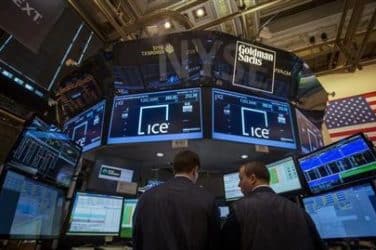
Euronext, the pan-European exchange operator, is extending large-in-scale trading to commodity futures as new regulations have boosted block trading volumes.
MiFID II, the regulation which came into force in the European Union last month, places volume caps on trading of 4% of daily volume in an individual stock on any single dark venue as well as 8% of total average daily volume across all European dark pools. There are waivers for large-in-scale (LIS) orders and trading in auctions which has boosted volumes in block trades and periodic auctions.
Fidessa’s latest Top of the Blocks report for the week ending 26 January said last week was a record for both the total number of blocks and the value traded. Volumes are expected to continue to rise despite the European Securities and Markets Authority delaying the release of the double volume caps calculations from January to March.
Euronext said in a statement it is extending the LIS trade facility and introduction of block trade minimum quantities for commodity futures. The extension is currently live in the test environment and will go into production on 28 February 2018.
Euronext to widen block trade offer to #commodities https://t.co/hBsU8vy32e
— Euronext (@euronext) February 1, 2018
“As appetite for block trading in commodity futures continues to grow, and as an extension to our existing financial derivatives offer, the Euronext Large-in-Scale (LIS) trade facility will help facilitate block trading by improving liquidity and allowing participants to signal trading interest to selected counterparty groups,” added Euronext.
Two Euronext commodity flagship futures contracts for wheat and rapeseed will be tradable via LIS Trade, while block trades will be made available for a wide range of Euronext commodity futures contracts.
Duncan Higgins, head of electronic products for broker ITG in Europe, said in an email that European block market volume has grown almost tenfold since 2011 and more than doubled in 2017 due to significant reductions in market impact and lower trading costs. MiFID II also strengthens the best execution requirements.
“The bundled trading arrangements previously in place often restricted traders from making the best possible choice for their client,” added Higgins. “As the market unbundles we expect to see buyside traders continue to take ownership of their executions and choose the lowest cost trading approach for their funds.”
Trading commissions have historically used to pay for research. MiFID II unbundles research payments which now have to either be funded from an asset manager’s P&L or from a research payment account, where the asset manager agrees a budget with a client.
Broker ITG launched Posit Auction, a lit segment on the broker’s Posit multi-lateral trading facility, when MiFID II went live. Posit Auction runs periodic auctions, of between 50 and 100 milliseconds, where there are opportunities for matching orders. The randomised length of auctions makes it harder for them to be targeted by aggressive trading strategies.
On January 24 Posit Alert block crossing system set a record in Europe crossing £1bn ($1.4bn) in value traded for the first time.
POSIT Alert sets new 1-day record for European blocks crossed – over £1 billion on January 24th, breaking previous record in Nov. '17 by ~30%.
— ITG (@ITGinc) January 25, 2018
Turquoise, the MTF owned by the London Stock Exchange Group, set a new monthly record in January:
New monthly record for the award-winning Turquoise Plato Block Discovery™ :€9.25bn traded in January 2018; +22% from our
previous record of €7.55bn in Oct 2017. Thank you to our customers!— Trade Turquoise (@tradeturquoise) February 1, 2018
Cboe Europe has been setting records in its periodic auctions book and in large-scale trading, both in the run-up to MiFID II, and since the regulation came into force and reached new highs for the month in January.





